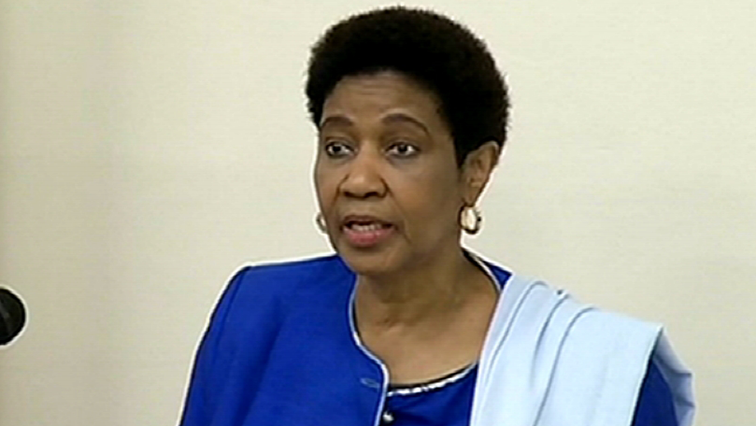South Africa has been warned against embracing a bystander syndrome when it comes to issues of women’s leadership and countering the scourge of femicide and other forms of violence against women. That was the message from the Executive Director of UNWOMEN as the world marked International Women’s Day this Monday, March 8.
Under the theme “Women in Leadership: Achieving an equal future in a COVID-19 World” – Dr Phumzile Mlambo-Ngucka has sought to highlight the urgent need to ensure that more women are in leadership positions as the world begins to build back from the impacts of a pandemic that has disproportionately affected women and girls.
The data is clear, women and girls have been hardest hit by the coronavirus pandemic – from losing jobs in the informal sector, unpaid care work, loss of schooling, a rise in forced child marriage and the exponential surge in gender-based violence among others as Mlambo-Ngcuka explains.
“From central banks, from governments, we have been told that the pandemic has hit women harder, two-thirds of the jobs we have lost have been lost by women, women have been thrown into extreme poverty in all parts of the world, girls have dropped out of school – rather not returning back to school after the long period of school closure and this is risking a lost generation that is engendered. So in order to fix these problems you need women to be part and parcel of the processes that are looking for solutions and for relief.”
She warned that even national task teams on COVID-19 recovery were dominated by men risking perpetuating practices that have now been deepened by the pandemic.
“The fact that so many women lost their jobs during COVID-19, this is because women have always been employed in low paying jobs, in jobs that are not protected, where women don’t have enforceable contracts and its therefore easy to dismiss them so if we’re looking at building back better, we have to make sure that women have secured jobs and have decent jobs.”
Mlambo-Ngcuka argues that women’s leadership doesn’t happen organically and must often be preceded by special measures such as quotas and targets. The latest Inter Parliamentary Union report on Women in Parliament shows that the global proportion of women in parliament reached a record at 25.5% with just three countries at above 50% representation – Rwanda, Cuba and the United Arab Emirates.
South Africa is at almost 46%. But women’s leadership is complicated even further as the Mlambo-Ngucka explains: “The 22 women in the world that are heads of state – all of them have been harassed and it’s getting worse now because of what can happen on social media. You have the Vice President of America being trolled – I’m sure you’ve seen the trolls that she has been exposed to. The Prime Minister and President of Estonia, same thing, facing that challenge – we know about the PM of Australia what she went through, in Kenya, the harassment of women from country so national and some of the women harassment and some of the women deciding they cannot put their family through this because when they suffer, their families also suffer.”
Asked about her personal experience in leadership, particularly as a black woman, this was that exchange: “There is an expectation that you do not have the capability for the job so when you are in the job, people will actually try to ignore you or marginalize you in your own position. It is therefore important to really know your stuff, to participate actively in decision-making and to always go to meetings prepared, always go to meetings prepared.”
Asked if she has ever felt undermined, particularly in your current role, this is what she said: “Not so much in this current role but certainly in the role of a politician in non traditional areas, in Minerals and Energy, in Trade and Industry, as a Vice President when most of the time you were a minority. You actually had to make sure you are not a guest.”
Asked about a recent Amnesty International Report that says homes across Southern Africa have become enclaves of cruelty, rape and violence for women and girls: “I’m afraid with all the work that has been done and I think it’s fair to say that we’ve seen increased attention to violence against women and femicide, greater awareness, more resources but look at the statistics. We are clearly not winning, we still have a long way to go, so this is not the time to relax, we have to do more, we have to stay the course. I don’t know what more to say other than to say we need everybody to be part of the fight.”


